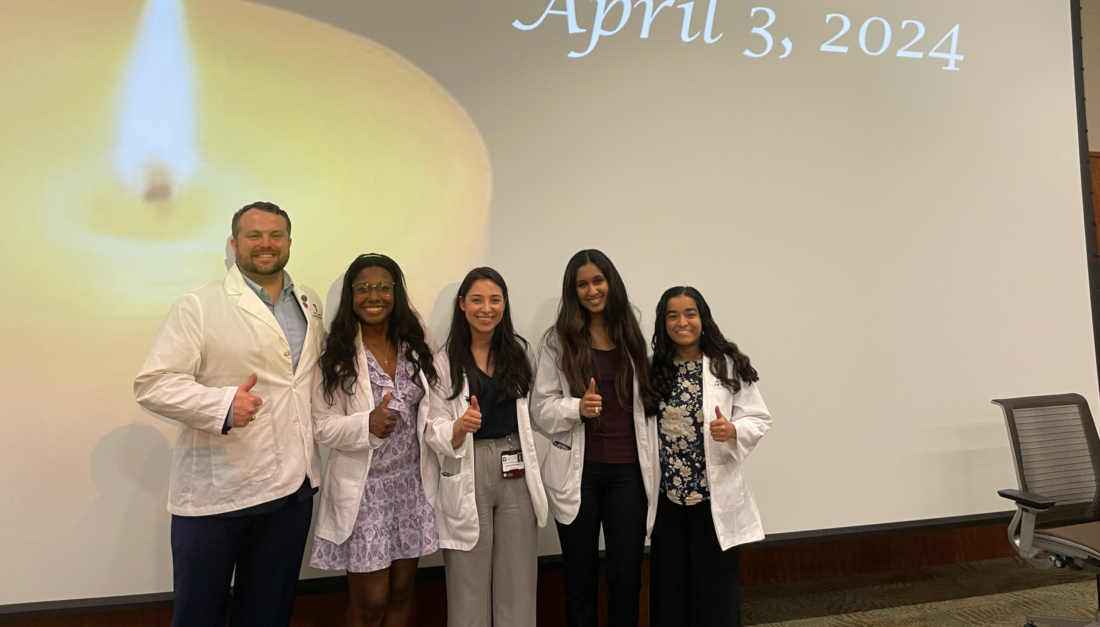Fuchs-Young opens research doors with outreach program
Medical students can feel like they are constantly moving locations in order to better their education. While experiencing a new city can be new and exciting, the packing and road trips can be a lot of work for just a few years.
The educational journey of professor Robin Fuchs-Young, PhD, was no different. Fuchs-Young received her doctoral degree in pathology from Vanderbilt University, located in Nashville, Tennessee, and now conducts research on breast cancer at the Texas A&M College of Medicine in Bryan, Texas.
“It’s important for people to go out into the world and have new experiences and learn how different institutions and scientists handle what they do,” Fuchs-Young said.
Having this variety helps students solve problems in new ways and helps them understand a variety perspectives. They are also exposed to different strategies that can help them diagnose problems in the future.
“The training I had at Vanderbilt laid the foundation for everything I did after,” Fuchs-Young said. “The skills that I learned there made all of the difference in the world.”
Since pathology was a clinical department at Vanderbilt, Fuchs-Young was able to take classes with medical students, which laid the groundwork for her focus on cancer research.
“My experiences at Vanderbilt really prepared me for the kind of work that I do now,” Fuchs-Young said. “My research is very translational. We’re interested in what causes breast cancer and why some people get it and others don’t.”
Fuchs-Young was a professor at the University of Texas MD Anderson Cancer Center for more than 15 years before moving to Aggieland in 2012. One of the major factors in her decision to join Texas A&M was the emphasis on research and outreach programs that target underrepresented minorities in science.
“Researchers are interested in diversity because it’s a better way to solve problems. If you don’t bring a wide variety of perspectives and experiences to the table, then you’re not going to fix these complex problems.” Fuchs-Young said. “Diversity will make medicine better. It will make science better.”
To add even more diversity to the field, Fuchs-Young developed a 10-week summer research program for medical students and undergraduates to get a real flavor for a career in research. She found that some of the students find their true calling, while others discover that research is not their cup of tea. There are also times when students don’t believe they are able to be successful at research.
“Sometimes people come in thinking that they have to be superhuman to be good at research. They often leave realizing that it’s hard, but that it’s hard for all of us,” Fuchs-Young said. “This is when you see a real change in people. They finally say ‘I can do this.’ And then you say ‘Yes, you can. And I’ll help you.’”
The medical field is constantly changing and improving, which requires physicians to stay up-to-date with new developments. These summer research programs also teach students to incorporate new ideas into their practice, whether in the laboratory or the clinical setting.
“After this program, students will at least understand the experimental design process and how it works. Even if they decide that a career in research isn’t for them, it allows them to better evaluate their work and incorporate new findings and ideas into their work,” Fuchs-Young said.
So what about her own research? A recent study by Fuchs-Young and her team revealed that diet during gestation could have a major impact on whether or not someone develops breast cancer.
“This study will turn out to be very important,” she explained. “Other researchers have found that early life exposures have an impact on breast cancer susceptibility. Now we have good data showing that diet is one of those factors.”
With this newfound information, Texas A&M researchers are one step closer to understanding breast cancer and finding a cure.
Media contact: media@tamu.edu


